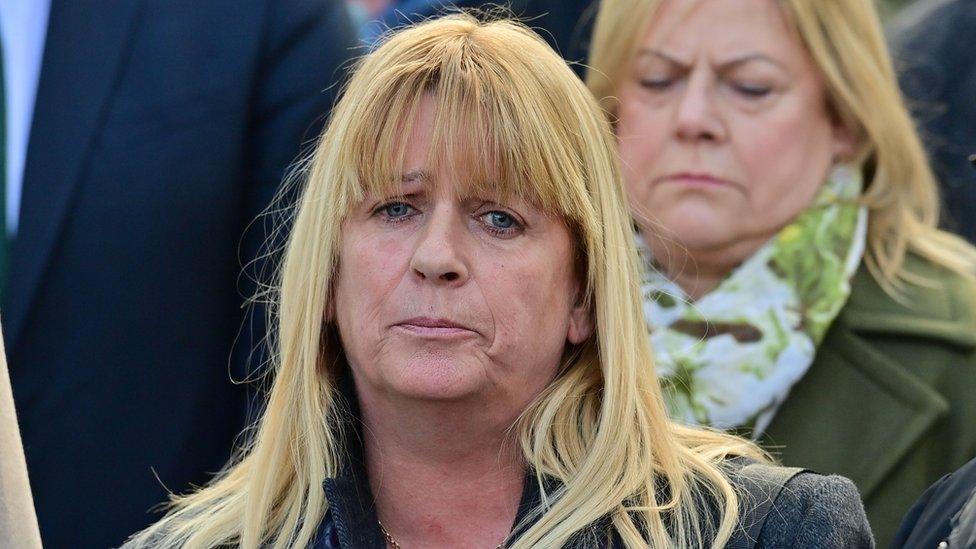Troubles legacy act: UK challenges Ireland on legal move
- Published
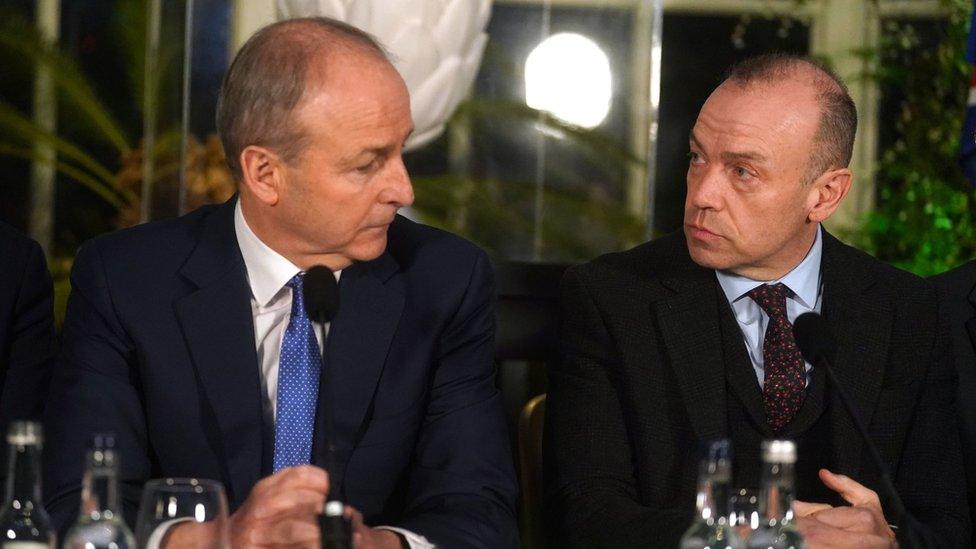
Chris Heaton-Harris wrote to Micheál Martin criticising the Irish government's decision to challenge the UK government.
The NI secretary has written to the Irish government formally registering "profound regret" at its legal challenge to the Troubles legacy act.
The controversial act became law in September, despite opposition from Dublin and all Northern Ireland's main political parties.
Ireland is to dispute the law in the European Court of Human Rights.
But Chris Heaton-Harris has again challenged Dublin on its record regarding legacy cases.
In a letter to Irish Foreign Affairs Minister Micheál Martin, the Northern Ireland secretary also questioned the handling of prosecutions since 1998.
The Northern Ireland Office (NIO) confirmed to the PA news agency that a letter had been issued formally criticising the timing of the Irish government's decision during "a delicate time" in Northern Ireland amid efforts to restore power-sharing at Stormont.
"The secretary of state, in his letter, repeats his call for the Irish government to clarify the number of criminal prosecutions brought in Ireland since 1998 relating to Troubles-related cases, and presses the Irish government more widely to answer questions regarding its own record on tackling legacy issues in its own jurisdiction," the NIO said in a statement to PA.
It is understood the British ambassador to Ireland issued the letter to the Irish government on Sunday.
'Different approach'
Ireland's Department of Foreign Affairs said on Monday that Mr Martin was aware of the letter and would respond to Mr Heaton-Harris "in due course".
"At Stormont House, a collective way forward on legacy was agreed, along with most parties in Northern Ireland," a spokesperson said.
"This included the two governments signing an international agreement.
"Regrettably the British government decided on a different approach, unilaterally."
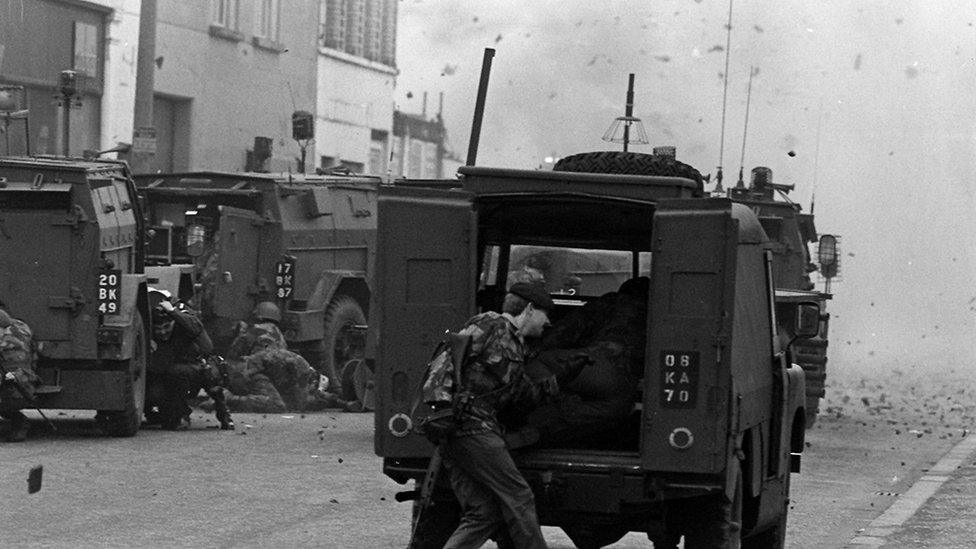
The Troubles was a period of conflict which lasted for 30 years and cost the lives of more than 3,500 people
The spokesperson said compliance of the legislation with the European Convention on Human Rights would be "tested by the European Court of Human Rights".
"In the meantime, the two governments have much to work on together."
Aspects of the recently passed UK law include a limited form of immunity from prosecution for Troubles-related offences for those who co-operate with the new Independent Commission for Reconciliation and Information Recovery (ICRIR).
The Northern Ireland Troubles (Legacy and Reconciliation) Act 2023 will also halt future civil cases and legacy inquests.
Critics argued the law gave an amnesty and removed access to justice.
In December Taoiseach Leo Varadkar said his administration was left with "no option" but to legally challenge the UK government over the legacy act.
He said the "strong" legal advice was that the UK Legacy Act breached the UN Convention on Human Rights.
'Double standards'
Reacting to Mr Heaton-Harris's letter, Democratic Unionist Party (DUP) leader Sir Jeffrey Donaldson said he agreed with the NI secretary on the "double standards" of the Irish government on legacy.
"Whilst we opposed what the UK government are doing, and continue to oppose this amnesty that they have brought forward in their legacy proposals, we see the same approach taken by the Irish government, indeed over many years," he told BBC's Good Morning Ulster programme.
"As the secretary of state has pointed out, there have been no prosecutions by the Irish government, no attempt to prosecute those who were involved in terrorist activity in their jurisdiction."
In response, Sinn Féin's Conor Murphy has said people "shouldn't be distracted by records".
"Let's not kid ourselves that it's about the narrow ground of prosecutions, and who prosecuted who - this is about the British government effectively shutting down its role in the conflict," he told the programme.
'No choice'
Fergus O'Dowd, a Fine Gael member of the Dáil (Irish Parliament), argued that the Irish government has been rigorous with regard to Troubles-related prosecutions.
He also told Good Morning Ulster that the Irish government had "no choice" but to reluctantly take on a legal case to challenge the bill.
Mr O'Dowd, who is the chairman of the Oireachtas (Irish parliament) Joint Committee on the Implementation of the Good Friday Agreement, said both governments "need to get closer together" following Brexit.
"We want relations to get better," he said.
"But [the Irish government] have clearly defined objectives in relation to human rights and that's not going to change."
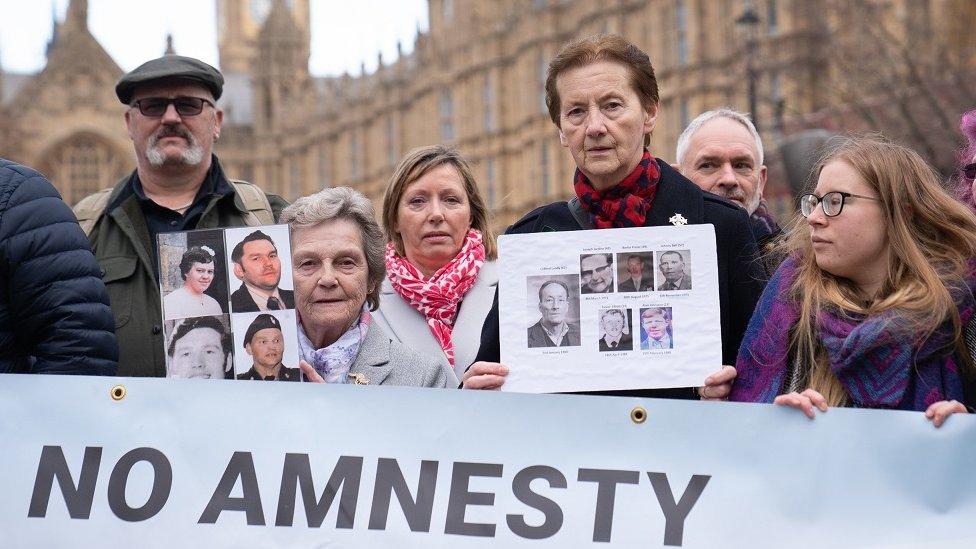
The bill has been widely criticised by Northern Ireland's political parties, as well as victims' campaigners
Victims and survivors have already taken action against the UK government at the High Court in Belfast, opposing the bill which Boris Johnson, then-prime minister, said in 2021 was to "draw a line under the Troubles".
The 30-year conflict in Northern Ireland cost more than 3,500 lives and left thousands of people seriously injured.
The legislation also brought an end to all new inquests and civil actions related to the conflict.
Ireland's case is being taken under the European Convention on Human Rights.

It's been almost three weeks since Dublin decided to push back legally and politically against London's legacy act.
But diplomatic relations have taken a further dive as the UK's ambassador to Ireland, Paul Johnston, issued the letter to the Irish government.
In it Chris Heaton-Harris again warned Micheál Martin that it's a "delicate time" in Northern Ireland while efforts to restore power-sharing at Stormont go on.
And he challenged Dublin on its record regarding legacy cases and its handling of prosecutions since 1998.
The Irish government has insisted its only option was to take the case, which could take years to conclude.
Related topics
- Published5 September 2023
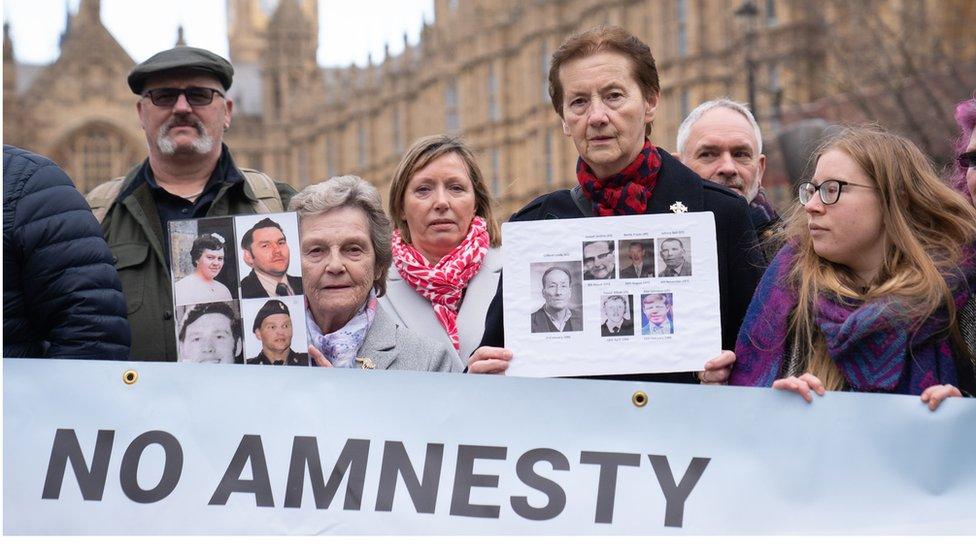
- Published20 December 2023

- Published30 November 2023
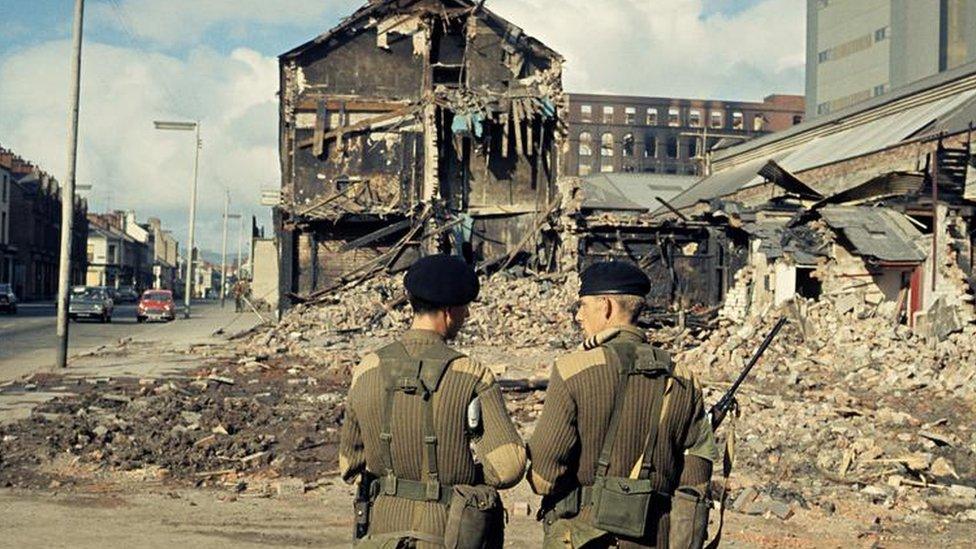
- Published21 November 2023
